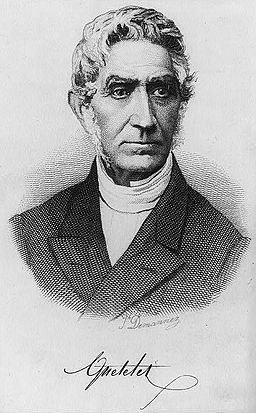 |
| Even Adolphe Quételet, who invented the BMI formula, warned of its limitations |
A major reason why I believe that my son’s eating disorder wasn’t taken as seriously as it should have been by clinicians from the GP upwards is because his BMI was still within the so-called “normal” range, despite the fact that he’d lost about a quarter of his original body weight.
Just as damaging, was the fact that my son’s BMI was calculated in front of him at virtually every CAMHS session. So he was constantly being given the message that he was kind of okay and didn’t need to put on much, if any, weight. Because if he did put on weight, he’d be getting “too fat”.
So, for eating disorder victims and especially males with eating disorders whose original BMIs can often be higher than a female’s (for example, due to sports activities and carrying extra muscle), I believe that using BMI is an indicator of seriousness and of recovery can be unhelpful to say the least. Or indeed using the BMI scale at all.
Let’s face it, BMI is a flawed and antiquated formula introduced almost 200 years ago, and which doesn’t differentiate between fat and lean tissue (muscle) content. This article explains more...
So I was concerned to hear that there is a proposal to pay GPs to regularly measure their patients BMIs. As I have said before, this kind of measure can be lethal in the wrong hands i.e. with people who may be predisposed to developing an eating disorder or who already have one.
To be honest, none of these anti-obesity measures seem to make any difference to the rising levels of obesity in the UK. And, in my opinion, they tend to be adopted by people that don’t need to, or shouldn’t, lose weight.
I really think that paying GPs to measure patients BMIs could cause more problems than it solves – and that it could catapult certain individuals into a dangerous and destructive eating disorder.
(c) Eating disorders in boys: my teenage son’s recovery from anorexia. – Read entire story here.